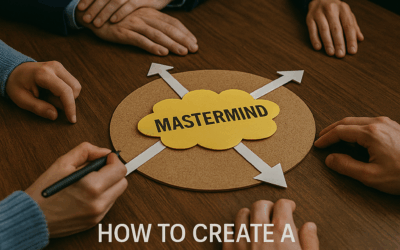Selecting the ideal CRM software can seem daunting, especially for small businesses where every dollar matters. Entrepreneurs and small business owners need solutions that foster growth while staying within budget. Whether you’re launching a startup or planning to scale, understanding the various CRM pricing models can help you optimize your investment and manage resources more effectively.
Understanding the CRM Pricing Landscape
The evolution of CRM software has led to a diverse range of pricing models tailored to different needs. While many companies favor subscription-based options, innovative approaches like pay-per-use and freemium plans are gaining popularity. The key is to discover cost-effective CRM solutions that meet your business requirements without sacrificing essential features. It’s important to evaluate not only the base price but also the value-added features, integrations, and scalability options included in each plan.
Balancing robust functionality with financial constraints is crucial. For businesses working with tight budgets, identifying affordable CRM pricing models can transform every dollar into a strategic investment, boosting customer relationship management and overall business growth.
As highlighted by Forbes, focusing on the true benefits of a CRM rather than getting distracted by unnecessary features can optimize your budget. This perspective is particularly valuable for small enterprises seeking detailed customer insights without overspending.
Exploring Affordable CRM Pricing Options
Small businesses require flexibility when selecting a CRM that fits their unique financial and growth requirements. Several pricing models offer distinct advantages designed to align with various business stages:
Tier-Based and Subscription Models
Tier-based pricing is popular among CRM providers, offering multiple service levels. This model allows businesses to choose a package that meets their current needs and upgrade as they grow. Typically, a basic package covers essential features, while premium tiers provide advanced functionalities. Such plans are ideal for startups seeking minimal entry costs with the ability to scale over time. For more detailed strategies on cost-effective technology selection, you might also explore our CRM Solutions for Small Businesses article.
Subscription-based models, which involve a fixed monthly or annual fee, are also highly attractive. This predictable pricing structure aids in budget planning and ensures steady costs. Many providers further incentivize annual subscriptions with discounted rates, making long-term planning more affordable and predictable.
Usage-Based and Pay-As-You-Go Models
For small businesses with variable customer interactions, usage-based pricing is an excellent option. Instead of paying a fixed fee, you only pay for what you use, aligning expenses with actual activity levels. This model is particularly beneficial during seasonal fluctuations or sudden growth spurts, ensuring maximum value for every dollar spent.
Pay-as-you-go options reinforce cost efficiency by eliminating unnecessary monthly fees, allowing funds to be directed where they are most needed. Embracing these flexible CRM pricing strategies ensures that expenses reflect real-world usage and remain in line with your budget.
Freemium and Free Trial Options
Understanding the need to test software before committing financially, many CRM providers offer freemium models. With these plans, users access basic features at no cost and have the option to upgrade for advanced capabilities. This approach is particularly advantageous for early-stage businesses requiring fundamental CRM functionalities.
Free trials are another risk-free method for evaluating CRM systems. They allow you to assess key integrations and determine if the platform aligns with your operational needs. For startups and small enterprises, trial periods can be critical in choosing a CRM that seamlessly enhances processes and customer engagement.
Aligning CRM Pricing with Business Goals
The ultimate goal is to select a CRM solution that supports both immediate and long-term business objectives. Entrepreneurs should focus on aligning the software’s capabilities with their strategic vision. By exploring affordable CRM pricing models, you ensure that every investment contributes to improved customer relationship management and sustained business growth.
Transparent pricing, scalability, and predictable costs are essential factors. Before deciding, carefully review any additional fees, upgrade costs, and add-ons that may affect your budget. Many CRM providers offer varied pricing strategies, so read the fine print and take advantage of trial versions to avoid unforeseen expenses.
Vendor support also plays a critical role. A CRM’s effectiveness is closely tied to the quality of training, ongoing updates, and customer service provided. Selecting a vendor who offers comprehensive onboarding and responsive support ensures your CRM system continues to deliver value as your business evolves.
For further insights on integrating technology into your growth strategy, consider exploring business improvement guides. These resources can help refine your digital strategy and maximize your return on investment.
Finding the Perfect Fit for Your Budget
The process of choosing CRM software should balance cost with capability. Instead of focusing solely on low pricing, evaluate how the system can evolve with your business. Consider integration with existing systems, ease of use for your team, and the accessibility of customer data and analytics to ensure the tool meets your long-term needs.
If budget constraints are a concern, opt for CRM solutions that offer essential features at a low cost while allowing for incremental upgrades as your business expands. Periodically reviewing your CRM’s performance against your business objectives can help determine if an upgrade or change is necessary.
An effective CRM system not only streamlines customer interactions but also empowers sales and marketing teams. Whether you choose a subscription plan, usage-based model, or freemium option, incorporating a CRM into your business strategy will lead to better workflows, enhanced customer service, and improved profitability.
In today’s fast-paced business environment, there is no one-size-fits-all CRM pricing model. The best strategy is to align your CRM selection with your broader business goals. By considering long-term benefits alongside initial costs, you ensure that your CRM investment remains valuable as your business and market demands evolve.
Make an informed decision by evaluating both immediate requirements and future growth. For many entrepreneurs, budgeting for a CRM is a key component of broader operational efficiency. By understanding the nuances of various pricing models, you can secure a CRM solution that supports both growth and budget management.
- Explore tier-based, subscription, usage-based, and freemium pricing models for maximum flexibility.
- Choose affordable CRM software pricing models that align with your business growth strategy.
- Prioritize transparent pricing and strong vendor support to maximize ROI and operational efficiency.
- Assess both immediate needs and long-term goals to make an informed CRM investment.









